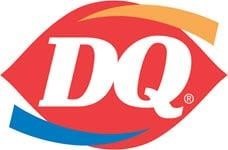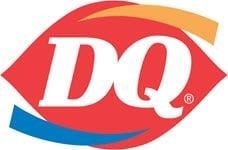

Nutrition facts and Weight Watchers points for Protein Boost from Dairy Queen.
Calories
There are 50 calories in Protein Boost.
Nutrition Facts
| Serving Size | 13g | |
| Calories | 50 | |
| Calories From Fat | ? | |
| Amount Per Serving | % Daily Value* | |
| Total Fat | ? | – |
| Saturated Fat | ? | – |
| Trans Fat | ? | |
| Cholesterol | ? | – |
| Sodium | 90mg | 4% |
| Total Carbohydrates | ? | – |
| Dietary Fiber | ? | – |
| Sugars | ? | |
| Protein | 12g | 24% |
| Vitamin A | ? | |
| Vitamin C | ? | |
| Calcium | ? | |
| Iron | ? | |
*All percent daily value figures are based on a 2,000 calorie diet.
Nutritional information source: Dairy Queen
Allergens
Contains milk
Does Not Contain* egg fish gluten peanuts shellfish soy tree nuts wheat
Unknown glutamates MSG mustard nitrates seeds sesame sulfites
Allergy Information: a Dairy Queen Protein Boost contains milk. a Dairy Queen Protein Boost does not contain egg, fish, gluten, peanuts, shellfish, soy, tree nuts or wheat.*
* Please keep in mind that most fast food restaurants cannot guarantee that any product is free of allergens as they use shared equipment for prepping foods.
Ingredients
We are working on getting the ingredients for this item.
Additional Information
When you’re looking for a protein boost at Dairy Queen, the Protein Boost is a popular choice. Packed with protein and low in calories, this product offers several features, benefits, and a few drawbacks to consider. In this article, we’ll explore the Dairy Queen Protein Boost and give you an overview of what it has to offer.
Product Features
The Dairy Queen Protein Boost is a supplement designed to add a concentrated dose of protein to your diet. Here are some of the key features of this product:
- High protein content: The Protein Boost contains a substantial amount of protein, with 48 grams per serving. Protein is essential for building and repairing body tissue, supporting muscle growth, and maintaining overall health.
- Low Carbohydrate and Fat: This supplement is virtually carbohydrate and fat free, making it suitable for individuals on low carb or low fat diets.
- Convenient serving size: The Protein Boost comes in a 13g serving size, making it easy to incorporate into your meals or beverages without adding excessive calories.
Benefits:
Incorporating the Dairy Queen Protein Boost into your diet can provide several benefits:
- Muscle recovery and growth: With its high protein content, Protein Boost may aid in muscle recovery and growth, making it an ideal choice for individuals who regularly exercise or strength train.
- Weight Management: Protein is known for its satiating effect, helping you feel fuller for longer. By incorporating Protein Boost into your diet, you may experience reduced hunger and better appetite control, which can support your weight management goals.
- Nutritional support: Protein Boost is a convenient way to increase your protein intake, especially if you find it difficult to meet your daily protein needs through regular meals alone. Protein plays a critical role in several bodily functions, including the production of enzymes, hormones and antibodies.
Disadvantages:
While the Dairy Queen Protein Boost offers numerous benefits, it’s important to consider a few drawbacks:
- Limited nutrient profile: The Protein Boost is primarily focused on providing protein and lacks a well-rounded nutrient profile. It’s important to make sure you’re getting a variety of nutrients from other sources to maintain overall nutritional balance.
- Allergen concerns: Protein Boost contains milk, which may be problematic for individuals with lactose intolerance or dairy allergies. If you have any specific dietary restrictions or allergies, it is important to check the ingredient list before consuming this product.
- Availability: Dairy Queen Protein Boost may not be available at all locations or during certain hours. It is recommended that you check with your local Dairy Queen to confirm its availability before planning to incorporate it into your meals.
Conclusion
Dairy Queen Protein Boost offers a high-protein, low-carb, low-fat option to enhance your diet. With its muscle recovery and growth benefits, weight management support, and convenient serving size, it can be a valuable addition for individuals looking to increase their protein intake. However, it’s important to be aware of its limited nutrient profile, potential allergens, and availability. As with any dietary supplement, it’s best to consult with a healthcare professional or registered dietitian to determine if Dairy Queen Protein Boost meets your specific nutritional needs and goals.
Questions and Answers
1. Is Dairy Queen Protein Boost suitable for vegetarians?
Yes, the Dairy Queen Protein Boost is suitable for vegetarians as it contains no meat or animal-derived ingredients. However, please note that it does contain milk, so it may not be suitable for those on a vegan diet.
2. Can I take Protein Boost if I am lactose intolerant?
Individuals with lactose intolerance may experience symptoms such as bloating, gas, or digestive discomfort when consuming products that contain lactose. Because Protein Boost contains milk, which naturally contains lactose, it may not be suitable for individuals with lactose intolerance. If you are lactose intolerant, consider consulting a healthcare professional or registered dietitian about alternative protein options.
3. Can I use Protein Boost as a meal replacement?
While the Protein Boost can provide a concentrated dose of protein, it is not intended to be a complete meal replacement. It is recommended that you incorporate it into your meals or snacks to increase your protein intake, but make sure you are still consuming a balanced diet that includes other essential nutrients from whole foods.
4. How should I incorporate the Protein Boost into my diet?
The Protein Boost can be a versatile addition to your diet. You can mix it into beverages like smoothies and milkshakes,
Dairy Queen Protein Boost FAQs
Is Dairy Queen Protein Boost suitable for vegetarians?
Yes, the Dairy Queen Protein Boost is suitable for vegetarians as it contains no meat or animal-derived ingredients. However, please note that it does contain milk, so it may not be suitable for those on a vegan diet.
Can I take Protein Boost if I am lactose intolerant?
Individuals with lactose intolerance may experience symptoms such as bloating, gas, or digestive discomfort when consuming products that contain lactose. Because Protein Boost contains milk, which naturally contains lactose, it may not be suitable for individuals with lactose intolerance. If you are lactose intolerant, consider consulting a healthcare professional or registered dietitian about alternative protein options.
Can I use Protein Boost as a meal replacement?
While Protein Boost can provide a concentrated dose of protein, it is not intended to be a complete meal replacement. It is recommended that you incorporate it into your meals or snacks to increase your protein intake, but make sure you are still consuming a balanced diet that includes other essential nutrients from whole foods.
How should I incorporate Protein Boost into my diet?
Protein Boost can be a versatile addition to your diet. You can mix it into beverages such as smoothies, milkshakes or yogurt to boost their protein content. It can also be sprinkled over salads, added to oatmeal or cereal, or used in baking recipes to increase the protein content of your favorite treats.
Can Protein Boost help with weight loss?
Incorporating the Protein Boost into your diet can support weight loss efforts by providing a satiating effect and helping to control appetite. Protein is known to promote satiety, which can reduce overall caloric intake. However, it’s important to remember that weight loss is a result of overall caloric balance, so incorporating the Protein Boost should be part of a well-rounded weight management plan that includes a balanced diet and regular physical activity.